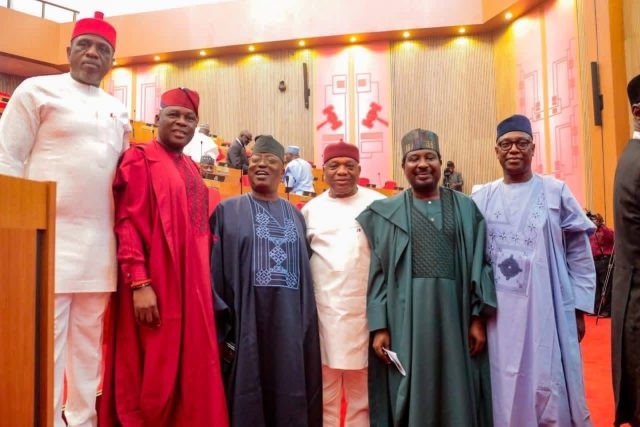The Nigerian Senate has approved the Nigerian Electric Vehicle Transition Bill for second reading, signaling a pivotal step toward transforming the country’s transportation landscape and positioning Nigeria as a leader in Africa’s green mobility revolution. Sponsored by Senator Orji Uzor Kalu, the legislation sets a bold vision: phasing out petrol-powered vehicles in favor of electric alternatives while fostering local manufacturing, reducing emissions, and driving sustainable industrial growth.
The bill establishes a comprehensive national framework to accelerate the adoption of electric vehicles (EVs) through a mix of incentives, regulatory mandates, and infrastructure development. To stimulate investment and consumer uptake, it proposes tax holidays, import duty waivers, road tax reliefs, toll exemptions, and direct subsidies for EV importers, manufacturers, and end users. These measures aim to make EVs more affordable and attractive amid rising fuel costs and growing environmental concerns.
A core objective of the Nigerian Electric Vehicle Transition Bill is to build a self-sustaining domestic EV industry. To this end, it imposes binding requirements on foreign automakers: they must partner with Nigerian assemblers, establish local assembly plants within three years of enactment, and source at least 30% of vehicle components locally. Non-compliance could result in penalties of up to ₦250 million per violation, while unlicensed importation of EVs will attract fines of ₦500 million and potential confiscation of vehicles.
Local manufacturers are also held to high standards. Assemblers will be required to produce a minimum of 5,000 EV units annually, adhering to internationally recognized safety, performance, and technical benchmarks. This provision reinforces quality control and positions Nigerian-made EVs for regional export.
The legislation builds on emerging momentum in the sector. Nigeria already has an estimated 15,000 to 20,000 electric vehicles on its roads and hosts over five active EV companies. Notably, Innoson Vehicle Manufacturing, Nigeria’s first indigenous automaker, launched its first fully made-in-Nigeria electric car in 2024—an achievement the bill seeks to scale into full-fledged industrial capability.
However, challenges remain, particularly around infrastructure. With limited public charging stations and an unstable power supply, EV adoption has been constrained. The bill directly addresses this gap by mandating that all fuel stations across the country install EV charging infrastructure. It further encourages private investment through government grants and tax credits for companies developing charging networks—a move designed to eliminate one of the biggest barriers to mainstream EV use.
By aligning industrial policy with climate goals, the Nigerian Electric Vehicle Transition Bill represents more than a shift in transportation technology—it is a strategic push to modernize the economy, reduce dependence on imported fuels, create skilled jobs, and position Nigeria at the forefront of Africa’s clean energy transition.
With Senate approval at the second reading, the bill now moves to committee review and public hearings before advancing to final passage. If enacted, it would mark one of the most ambitious green industrial policies in West Africa, setting a precedent for how African nations can leverage regulation to drive innovation, sustainability, and economic transformation.
As global automakers pivot toward electrification, Nigeria is sending a clear message: the future of mobility on the continent will not only be powered by electricity—but built by Africans, for Africa.
Follow us on Instagram.
https://www.instagram.com/businessnewsng?igsh=ZXpweTdjOGF1ZXdu

























